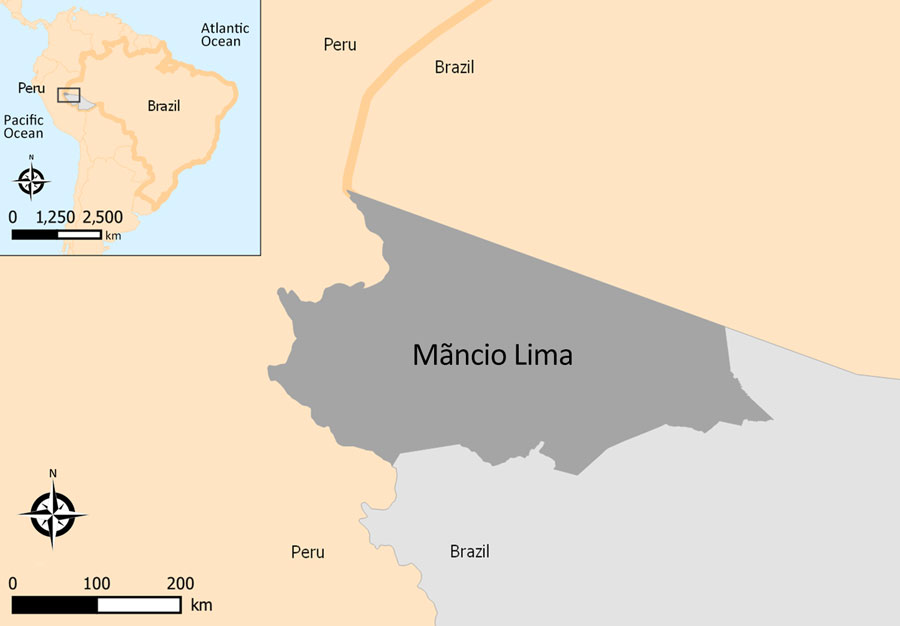Volume 30, Number 9—September 2024
Research
Lower Microscopy Sensitivity with Decreasing Malaria Prevalence in the Urban Amazon Region, Brazil, 2018–2021
Figure 1

Figure 1. Location of the municipality of Mâncio Lima, Brazil, the study site for study of microscopy sensitivity and decreased malaria prevalence in the urban Amazon Region, Brazil, 2018–2021. Mâncio Lima (dark gray shading), population 19,294 in 2022, is situated in the upper Juruá Valley region (light gray shading) of the western Brazilian Amazon, adjacent to the border with Peru, covering an area of 5,453 km2. Insert map shows location of study area in South America.
1Group members are listed at the end of this article.
Page created: August 01, 2024
Page updated: August 20, 2024
Page reviewed: August 20, 2024
The conclusions, findings, and opinions expressed by authors contributing to this journal do not necessarily reflect the official position of the U.S. Department of Health and Human Services, the Public Health Service, the Centers for Disease Control and Prevention, or the authors' affiliated institutions. Use of trade names is for identification only and does not imply endorsement by any of the groups named above.